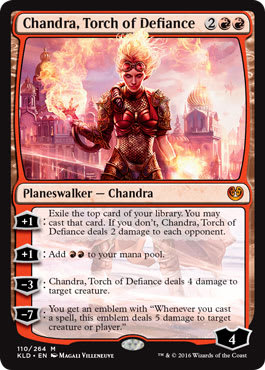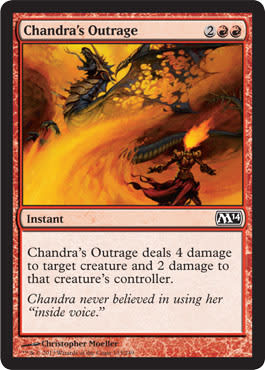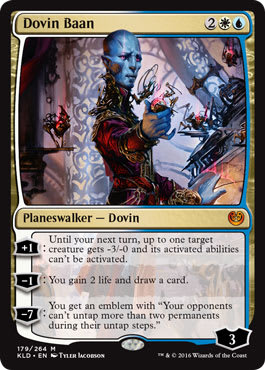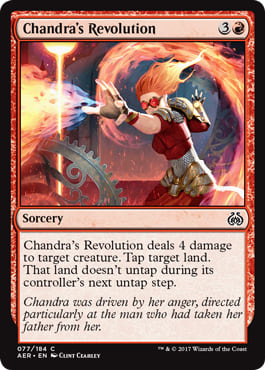To my long and secret shame, I have never read The Purifying Fire, at least not until recently. I bought it when it came out, and then let it sit on my shelf for seven years. This was incredibly silly of me, because it's not just a really solid, fun book, it's also absolutely crucial to understanding Chandra's place in Magic's overall narrative. Without The Purifying Fire, I don't think you can fully understand Kaladesh's narrative.
So, the apparent exile of the novel from canon after Magic Origins posed . . . a bit of a problem, to say the least.
Not that I couldn't make that judgment before reading. I'm not a fan of retcons. I think they undermine the whole point of following a serial narrative since you can't depend on there being any consistency to that narrative or follow through on core ideas. Why invest in something that will be rendered meaningless in a few years? And the retcons targeting The Purifying Fire always seemed particularly egregious. The actual composition of her family seemed a pretty arbitrary change, and the vague way Gideon's place as Chandra's love interest was, at least for a while, seemingly swept under the rug seemed similarly difficult to explain. What narrative space, if any, was actually opened up by these changes, or any of the raft of minor and major changes brought about during Magic Origins?
Actually delving into the text, however, reveals far more significant areas in which the text's exile, and for that matter the number of people like me who just never read it, even more of an issue. The Purifying Fire lays out all the basic, core parts not just of Chandra's character but her place in the narrative as a whole, what Chandra does for Magic's story. And to understand that, we need to talk about fire.
(And also talk about The Purifying Fire's contents, which necessitates spoilers. So, like, go pick the book up, it's not that expensive in ebook form and it's a fun read.)
Within Chandra's narrative, fire is a complex metaphorical object. One of the big problems the Keralians have with Walbert is that he sees fire as having only one aspect: uncontrollable destruction. As articulated by Mother Luti, being a pyromancer is equally about control and a kind of creative interaction with fire. In a sense Walbert isn't exactly wrong here, though. Certainly the book itself is a little ambivalent about Chandra's use of fire. By the end of the book, after passing through the titular Purifying Fire, she becomes more like a force of nature, beyond the kind of legalistic accountability Gideon would like to impose on her actions, capable of ripping the Order of Heliud to shreds in a cataclysmic blast.
But inherent in Chandra's destructive potential that is another aspect of fire — that of purification. Sure, the Purifying Fire itself is a huge source of White mana. But, the way Chandra sees it, all fire has the potential to purify, not just the fire that literally has "purifying" in its name. Some of this is because of who Chandra is as a person: when all you have is a hammer, and all that, right? Chandra knows how to burn, and she burns her way into problems, and then she burns her way out of them again. The fact that Chandra's propensity toward pyrotechnics as the answer to any and every hurdle tends to lead to greater and greater problems doesn't stop her from longing for a flame so powerful that it will burn away all her guilt and everything in the world that hurts her.
So, Chandra doesn't really have the power to act without consequence or control because that's not how, like, causality works. As a result, there's not really an escape from her guilt. Her experience with the Purifying Fire might have temporarily given her relief, in order for her to effect a particular change on Regatha, but she's constantly driven to resolve once more the feelings of guilt that keep coming back. She keeps searching for a fire that will cleanse, definitively and permanently.
This makes Chandra a useful kind of narrative crowbar. Unlike Jace, who largely has no coherent character reason to keep getting sucked into planar conflicts (and believe me, one of these weeks I'm going to take a big juicy bite of the mincemeat that is Jace's post-Agents of Artifice characterization!), Chandra can't seem to help but be involved, and involve herself inevitably in the most explosive way possible. Her appearance on Regatha leads to Walbert stepping up his crusade, which ultimately leads to his explosive demise. Her appearance on Zendikar leads the status quo of the Roil and the entrapment of the Eldrazi to be critically undermined, setting off a fundamental transformation of the plane. Her appearance on Diraden leads to the death Velrav and his father and the end of a century-long night (even if the resolution of the Diraden arc is awkward in the extreme).
And of course her entire narrative on Kaladesh is predicated on the revolutionary potential of being a mage, and a pyromancer no less. Dovin Baan acts as a kind of mirror in this narrative to Walbert, accidentally unleashing Chandra as a force of revolutionary fervor on his world in the hopes of quelling that force further down. As Baan and Walbert both discover, lines about playing with fire and getting burned might pertain to Chandra's pyromancy, but they equally apply to those who seek to impose their will on Chandra who can, after all, become a kind of living flame.
Fire, within Chandra's overarching narrative, therefore also represents a kind of revolutionary balancing force. This is why TPF is so crucial to retain in the storyline: it's the setup to everything happening in Kaladesh right now, with Chandra occupying essentially the same role in both stories. The stories form a parallel structure where Chandra enters into a social order that seems largely stable and peaceful, catalyzes events so that the underlying fissures within that social order become apparent, and then acts as a kind of force of nature to bring about a new status quo.
Importantly, though, TPF makes this explicitly clear: the Fire itself NEEDS Chandra to enter it, absorb its power, and defeat the Order of Heliud. The Order, drawing upon it while not subjecting themselves to its flames, unbalances Regatha in a way that is apparently antithetical to the Fire's own aims. So, it needs a revolutionary force, and that force is Chandra.
TPF establishes Chandra as playing a kind of dialectical role in the narrative. In this understanding, the societies Chandra enters are a particular thesis, a particular order or status quo. That order has its contradictions, though — things suppressed, pushed down, tensions under the surface, an antithesis. Chandra then barrels in and makes those things visible, explosively revealing the contradictions within a culture and acting as a kind of fiery, even alchemical synthesis, that allows for a new order to take hold. That order isn't necessarily inherently positive — after all, unleashing a bunch of Eldrazi Drones on Zendikar was probably not . . . great? — but it does move things forward in that way Red rebellions do.
This novel not only establishes these dynamics but makes it clear the underlying psychological realities of Chandra as a character —that drive I described above for absolution — which drive her effect on the plot. And that's just the core elements of the main character! We haven't even gotten into her relationship with Gideon and how that ties into both her need for purification as well as the tension between his need to be a Good Soldier and the inner drive to justice that causes HIM to rebel and . . .
Basically there's just a lot going on in this novel that really enriches the contemporary storyline.
Does it always work? Not at all. Hell, sometimes this thematic stuff doesn't even work within the context of The Purifying Fire (Diraden is on my agenda for a careful vivisection, believe me). Much of this stems though from the number of balls WotC has to keep in the air at once, paired with sometimes limited communication between developers, Creative, and individual authors, and a frustratingly slapdash approach to continuity.
What I hope is becoming clear though is that when the creative team sees older novels not as a barrier to be discarded in favor of Cool! New! Marketable! Stories! but as a deep well of potential symbolism, character depth, and thematic throughlines, we get some really incredible stories out of it. The recent revelation that Chandra's conversation with Gideon before she entered the Fire, in which she revealed her backstory, still totally happened but that she deliberately lied about it to make herself seem like worse of a person is . . . just . . . wow. It's still kind of a retcon but this explanation for why the facts didn't add up between TPF and Origins has clearly been made with a deep understanding of Chandra as a character haunted by guilt and culturally-derived self-loathing. I still don't really think it's that plausible that she'd just . . . invent imaginary siblings for herself? But you do what you can with what you've got.
And that's the point really: doing what you can with established material, leaning into continuity the way recent stories like Burn have, gives a real weight and significance that you can't really get when each story is just its own discrete unit subject to future revision. I hope that the greater focus on continuity we've seen in the last year means that we'll continue to see the themes of this novel, and of Kaladesh, explored, as Chandra's quest for a fire that can purify continues into the future.






























